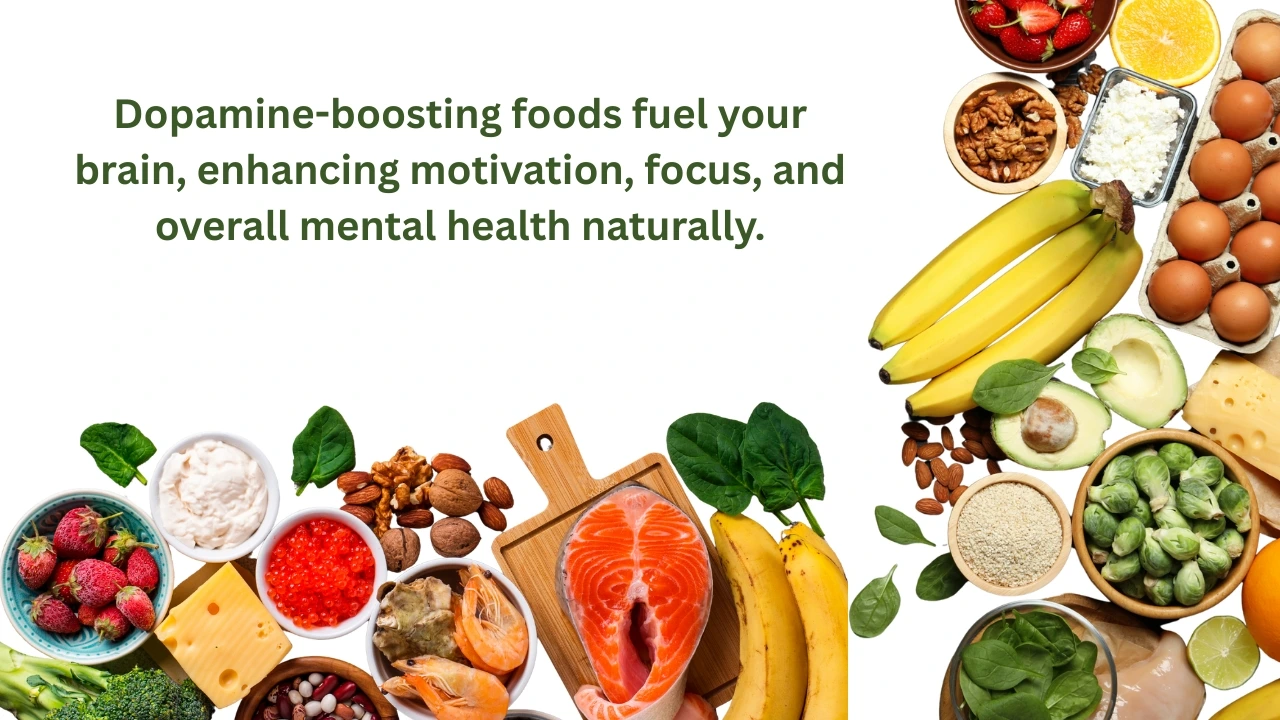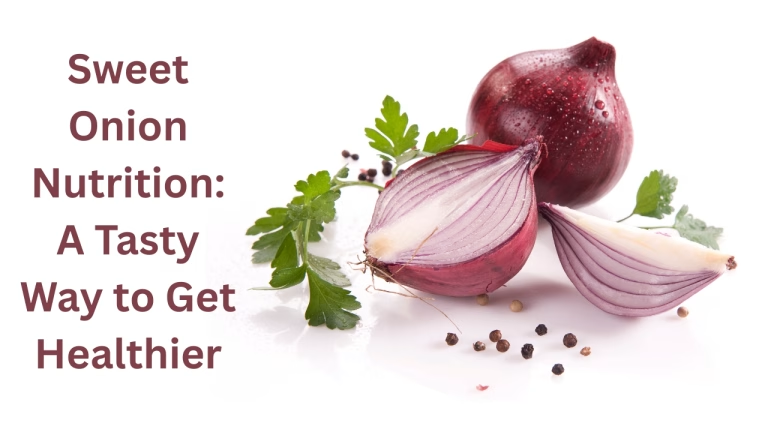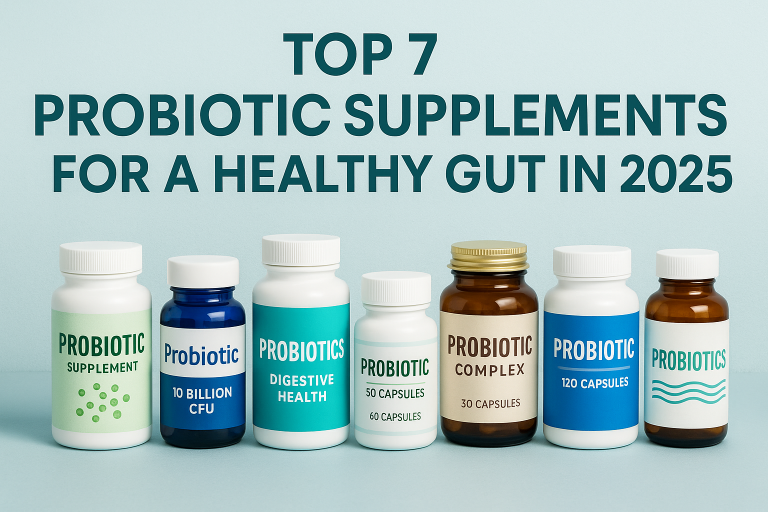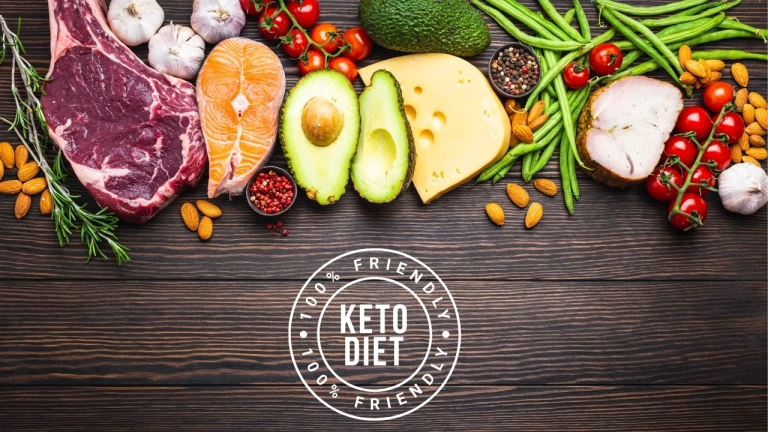Dopamine Brain Food: Overall Health
Dopamine, the brain chemical frequently linked to motivation, pleasure, and happiness, is well-known. However, did you know that your diet can affect your brain’s dopamine levels? Yes, exactly! Dopamine-rich foods can improve your motivation, mood, and ability to concentrate. We’ll examine how food affects dopamine levels, discuss some of the best foods that increase dopamine, and offer helpful advice on how to maintain optimal brain function in this blog post. This guide is for anyone who wants to improve their mood, whether they are a student trying to focus better, an athlete looking for more motivation, or someone else.
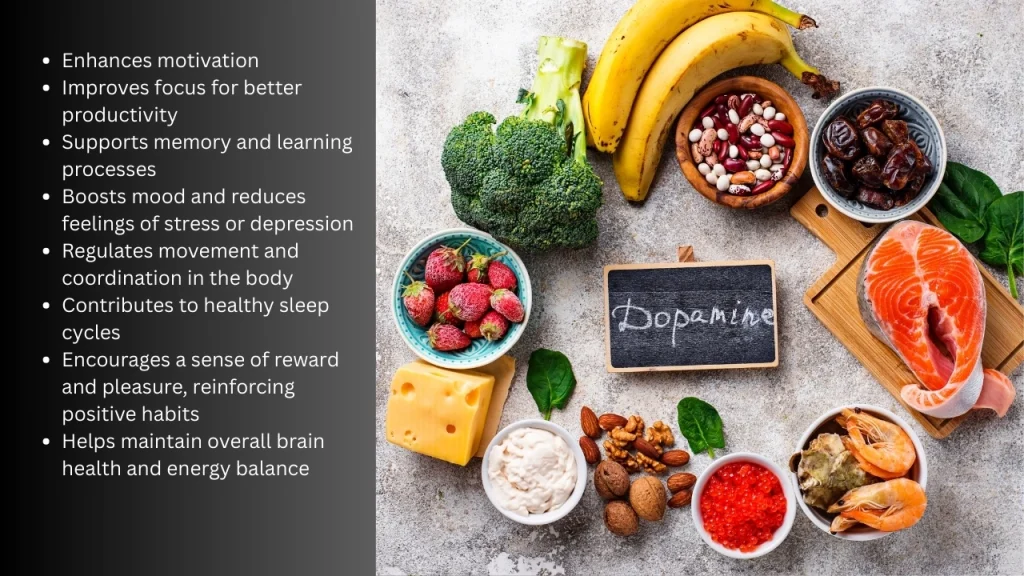
What Is It and Why Does It Matter?
It’s important to comprehend what dopamine is and why it matters before diving into foods that can increase it.
What is dopamine?
In the brain, dopamine functions as a neurotransmitter, a chemical messenger that facilitates the exchange of signals between nerve cells. Because it is so important to the brain’s reward system, it is frequently referred to as the “feel-good” neurotransmitter. Dopamine is released in your brain when you do enjoyable things, like eating your favorite food, reaching a goal, or even just hanging out with friends. This gives you a positive feeling.
Dopamine’s Function in the Brain
Numerous processes involve dopamine, such as:
Motivation and Reward: Goal-oriented behavior is largely driven by dopamine. Dopamine is released when you accomplish a goal, which reinforces the behavior and motivates you to keep trying.
Mood Regulation: Sadness, a lack of drive, and even depression are frequently linked to low dopamine levels. Dopamine elevation can enhance mood and general health.
Cognitive Function: Dopamine is essential for memory, learning, and focus. Reduced mental clarity, trouble focusing, and poor memory recall can all result from low dopamine levels.
Let’s examine some foods that naturally raise dopamine levels and promote brain health now that we know how important dopamine is.
Dopamine Brain Food: The Best Natural Foods to Increase Dopamine
Bananas: A Delightful Method to Increase Dopamine
In addition to being delicious, bananas are a great source of tyrosine, an amino acid that is a precursor to dopamine. Eating bananas helps your body produce more dopamine, a neurotransmitter that improves mood, by providing tyrosine, a building block for dopamine production.
How to Take Dopamine from Bananas:
- For a quick tyrosine boost, eat a banana with breakfast.
- For a dopamine-boosting treat, mix banana slices into your oatmeal or smoothie.
Omega-3 Fatty Acid-Rich Salmon
Omega-3 fatty acids, which are essential for brain function, are abundant in salmon. By preserving dopamine receptors in the brain, omega-3 fatty acids help dopamine send signals more efficiently.
How to Take Dopamine from Salmon:
- For supper, try pan-searing, grilling, or baking some salmon.
- Smoked salmon is a nutritious, dopamine-boosting addition to salads and sandwiches.
Dark Chocolate: The Delightful Enhancer of Dopamine
Flavonoids found in dark chocolate, particularly those with a high cocoa content (70 percent or more), are known to increase the brain’s production of dopamine. Dopamine may also be released in response to the taste of chocolate, which adds to the euphoric experience.
How Dopamine Is Affected by Dark Chocolate:
- After a meal, indulge in a small piece of dark chocolate.
- For an added taste boost and a natural dopamine source, incorporate dark chocolate chips into your baking recipes.
Nuts and Seeds: Little Dopamine Powerhouse
Tyrosine and magnesium, which are both necessary for the synthesis of dopamine, are abundant in nuts and seeds, including walnuts, almonds, flaxseeds, and pumpkin seeds. Tyrosine promotes dopamine synthesis, while magnesium aids in the regulation of dopamine receptors.
How to Use Seeds and Nuts to Increase Dopamine:
- Between meals, munch on a handful of mixed nuts and seeds.
- For a dopamine-friendly boost, incorporate them into baked goods, salads, and smoothies.
Eggs: A Source of Dopamine Packed with Protein
Tyrosine is also abundant in eggs, which are high in protein and promote the function of neurotransmitters. Dopamine levels are stabilized by the protein in eggs, which helps you stay focused and awake all day.
How to Take Dopamine from Eggs:
- For a simple and quick breakfast, scramble or boil eggs.
- Make an omelet with your preferred veggies for a dopamine-boosting meal.
Green Tea: A Relaxing Dopamine Booster
L-theanine, an amino acid found in green tea, has been demonstrated to raise dopamine levels in the brain. Green tea offers a more balanced and long-lasting dopamine boost than coffee, which can give you a quick caffeine boost followed by a crash.
How Green Tea Helps Dopamine:
- For long-lasting alertness and focus, sip on a cup of green tea in the morning or afternoon.
- For a mild dopamine boost, use green tea as the base for smoothies.
Avocados: Nutritious Fats for a Sound Mind
Tyrosine and good monounsaturated fats, which are abundant in avocados, support dopamine receptor function and production. Avocados are a great source of healthy fats, which are vital for the general health of the brain.
How Avocados Help Dopamine:
- For a dopamine-boosting snack, spread mashed avocado on whole-grain toast.
- To add more nutrients to salads, tacos, or sandwiches, add slices of avocado.
Berries: Dopamine Support and Antioxidants
Antioxidants, especially flavonoids, are abundant in berries like raspberries, blueberries, and strawberries. By shielding dopamine-producing neurons from oxidative stress, these antioxidants support normal dopamine levels.
How Berries Help Dopamine:
- A handful of fresh berries is a tasty addition to your yogurt, smoothie, or breakfast bowl.
- Berries are a great way to stay hydrated throughout the day.
Dietary Advice for Dopamine Boosting
Here are some useful pointers to help you maintain healthy dopamine levels in addition to including these dopamine brain foods in your meals:
Consume balanced meals on a regular basis
Dopamine levels can be kept constant throughout the day by eating regular, well-balanced meals. To promote long-term dopamine production, this entails incorporating a variety of protein, good fats, and complex carbohydrates into each meal.
Steer clear of sugar overload
Although eating sugary foods can give you a quick dopamine boost, they frequently cause a subsequent crash that leaves you feeling lethargic and depressed. To help keep your dopamine levels steady, choose healthier snacks like fruit or nuts rather than sugary ones.
Engage in Regular Exercise
One of the most effective ways to increase dopamine is through exercise. Exercise, especially aerobic exercises like swimming, cycling, or running, improves receptor sensitivity and raises dopamine production. On most days of the week, try to get in at least 30 minutes of moderate exercise.
Make Time for Sleep
Getting enough sleep is essential for preserving normal dopamine levels. Your brain may find it more difficult to react to dopamine signals if you don’t get enough sleep because it can cause a decrease in dopamine receptor sensitivity. Try to get between seven and nine hours of good sleep every night.
Common Questions
Which foods are the best for increasing dopamine?
Bananas, salmon, dark chocolate, eggs, nuts and seeds, avocados, green tea, and berries are some of the foods that are best for raising dopamine levels. Nutrients in these foods promote dopamine synthesis and dopamine receptor function.
Is It Possible to Naturally Raise Dopamine?
Indeed, eating a balanced diet, exercising frequently, and leading a healthy lifestyle can all naturally raise dopamine levels. Dopamine levels can be raised by eating foods high in tyrosine, omega-3 fatty acids, and antioxidants as well as by engaging in regular exercise.
How long does it take for dopamine brain food to start working?
Foods that increase dopamine can have different effects on different people. However, within a few days to a week of adding these foods to your diet, you might begin to notice improvements in motivation, focus, and mood.
Is It Possible to Raise Dopamine Without Supplementing?
Of course! Dopamine levels can be naturally raised by a healthy diet, consistent exercise, and sound sleeping practices. In some situations, supplements may be helpful, but the best strategy to promote long-term brain health is frequently to make dietary and lifestyle changes.
What Takes Place If I Have Too Much Dopamine?
Although increasing dopamine levels has its advantages, overproduction of dopamine can result in problems like addiction, obsessive behaviors, or mental health conditions. Maintaining equilibrium and avoiding overstimulation—whether from food, drugs, or other activities—is crucial.
Expert’s Opinion
In his book Spark: The Revolutionary New Science of Exercise and the Brain, Harvard psychiatrist and brain health specialist Dr. John Ratey emphasizes the significance of dopamine. He explains that maintaining dopamine levels and fostering cognitive function are largely dependent on lifestyle decisions, diet, and exercise. Dr. Ratey asserts that since dopamine is essential for motivation, concentration, and learning, it is critical to put our brain health first by maintaining a healthy diet and other good habits.
Conclusion
Motivation, mood regulation, and cognitive function all depend on dopamine, which is more than just a “feel-good” chemical. You can support your brain’s natural dopamine production and improve your general well-being by including foods that increase dopamine in your diet, such as bananas, salmon, dark chocolate, nuts, eggs, and green tea.
Keep in mind that eating the correct foods isn’t the only way to maintain healthy dopamine levels. Adopting a balanced lifestyle that incorporates stress reduction, regular exercise, and adequate sleep is also important. By making these small but impactful changes, you’ll be on your way to a more focused, motivated, and happier you.
Are you prepared for a natural dopamine boost? Your motivation and mood will improve as soon as you begin including these dopamine brain foods in your meals!

